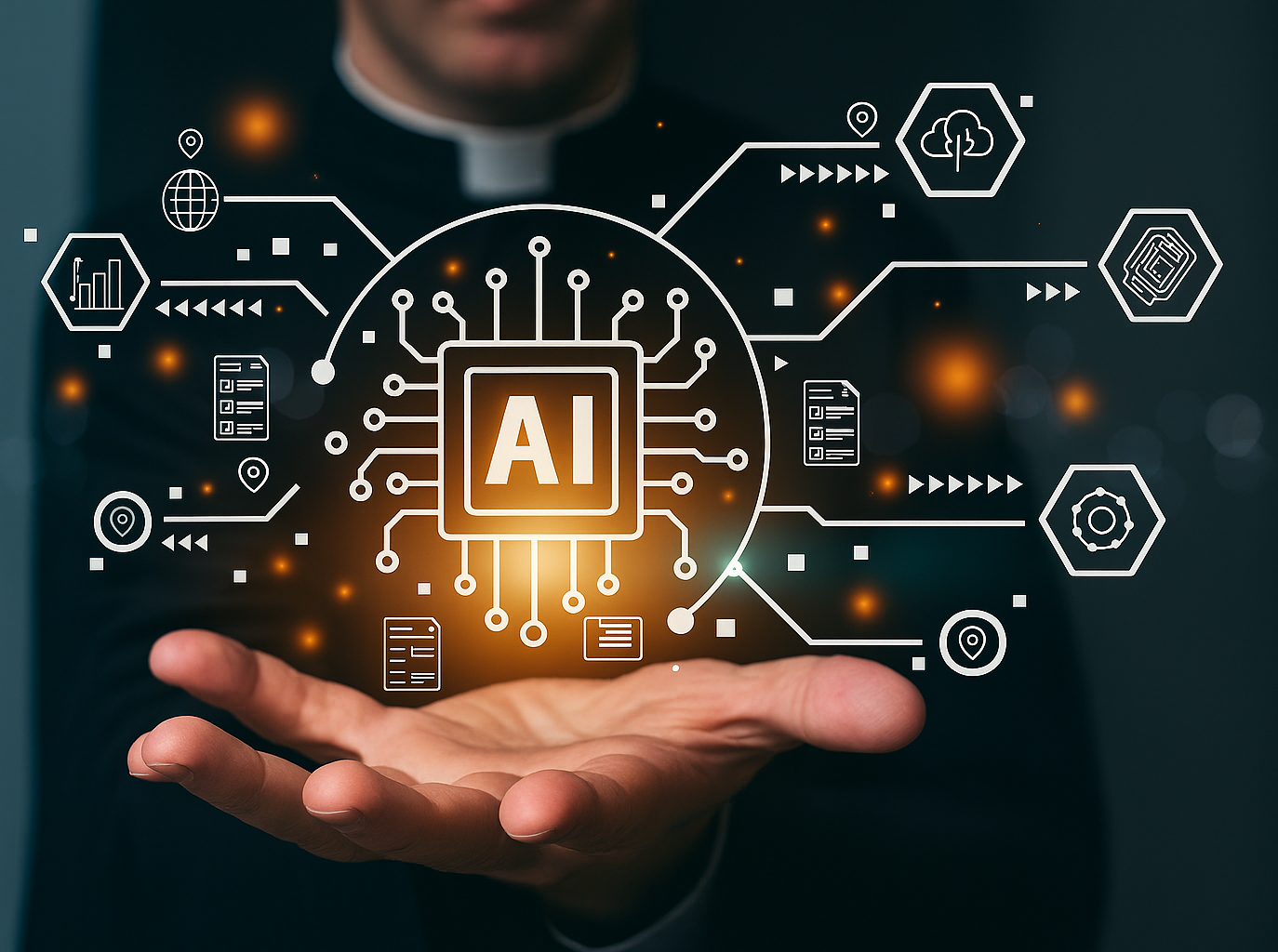
In a message delivered to the United Nations’ AI for Good Summit in Geneva, Pope Leo XIV, through Cardinal Secretary of State Pietro Parolin, called on nations to develop regulatory frameworks for artificial intelligence that prioritize the “common good,” which is the idea that the church’s moral theology is necessary for a just society. The Pope’s appeal reflects the Vatican’s growing involvement in global conversations about technology and highlights its desire to influence the direction of AI policy on the international stage.
Vatican News published the following on July 10, 2025:
• “Pope Leo XIV encouraged nations to establish frameworks and regulations on AI so that it can be developed and used according to the common good, in a message sent on July 10 to the participants of the AI for Good Summit, taking place in Geneva, Switzerland, from July 8 to 11.” [1]
• “The summit is organized by the United Nations’ International Telecommunication Union (ITU) and is co-hosted by the Swiss government. The event sees the participation of governments, tech leaders, academics and others who are interested and work with AI.” [1]
• “The development of this technology ‘must go hand in hand with respect for human and social values, the capacity to judge with a clear conscience, and growth in human responsibility.’ It requires ‘discernment to ensure that AI is developed and utilized for the common good, building bridges of dialogue and fostering fraternity,’ the Pope urged. AI needs to serve ‘the interests of humanity as a whole‘.” [1]
Programming artificial intelligence to align with Catholic social teachings is essentially using this technology to advance the doctrines of the church. AI should remain neutral and serve people of all faiths—or none at all. Embedding Catholic teachings into AI systems elevates a single religion—Rome—above all others. This amounts to weaponizing technology to push the Vatican’s agenda into government, education, corporations, and the general public.
Rome has long held ambitions of reestablishing its lost supremacy, and these efforts to influence the development of artificial intelligence represents a continuation of this agenda. By inserting its teachings—under the guise of promoting the “common good”—into the very heart of AI’s operational and regulatory frameworks, the Vatican is seeking to position itself to guide the future direction of a technology that will soon govern every aspect of human life, from communication, commerce, education, and governance to personal decision-making.
As AI becomes more integrated into the fabric of society, whoever can control these tools will have a lot of influence. If Rome succeeds in this effort, it won’t just shape global values—it will extend its reach into the daily lives of millions and billions of people, fulfilling its long-standing goal of guiding the conscience of the world.
“The Protestant world will learn what the purposes of Rome really are, only when it is too late to escape the snare. She is silently growing into power. Her doctrines are exerting their influence in legislative halls, in the churches, and in the hearts of men. She is piling up her lofty and massive structures, in the secret recesses of which her former persecutions will be repeated. Stealthily and unsuspectedly she is strengthening her forces to further her own ends when the time shall come for her to strike. All that she desires is vantage-ground, and this is already being given her. We shall soon see and shall feel what the purpose of the Roman element is. Whoever shall believe and obey the Word of God will thereby incur reproach and persecution” (Great Controversy, p. 581).
Sources
Rome has not changed (in contrast to what some in our leadership would like us to believe), nor will it will change. Methods may evolve with technological advancement but principles and goals remain the same until the fulfillment of prophecy.
Revelation 12:17